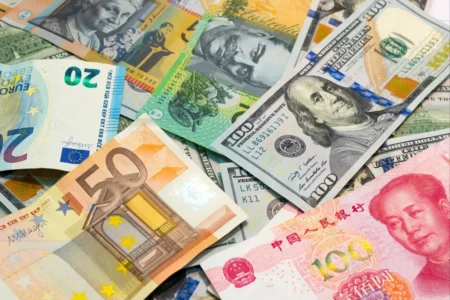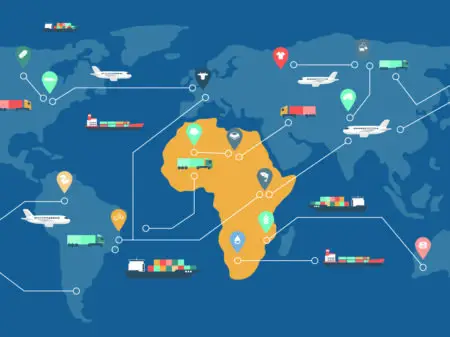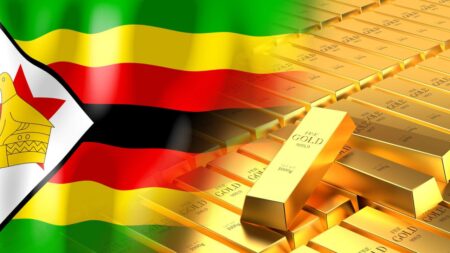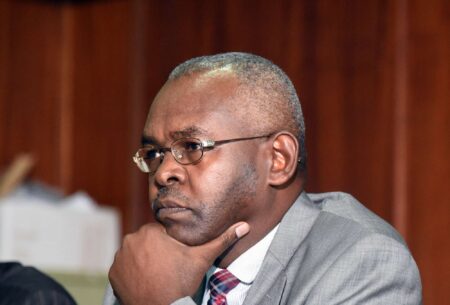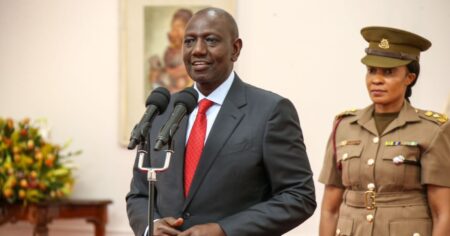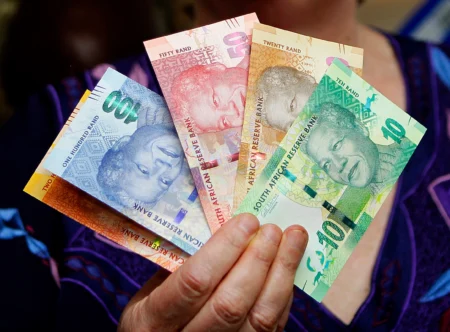- Africa’s new dawn: the rising role of digital and AI in agriculture
- Can Dangote Refinery Transform Africa Energy Ambition
- Gallup Survey: 80 per cent of Kenyan Workers Are Disengaged and Seek New Opportunities
- Madagascar Man Freed from 5KG Tumor After 15-Year Struggle
- How women in Africa are perceived and treated
- Sugar consumption in Kenya to Increase to 1.23 Million Tonnes
- Can Somalia and Turkey Oil deal Bring Change in Somaliland
- Remittances to Kenya dropped to $371.6 million in June, marking a six month low
Browsing: US dollar
- Kenyans in the diaspora sent home $4.19 billion in 2023 as remittance inflows to the East African country hit an all-time high.
- The high numbers signal that Kenyans living and working in the diaspora defied the inflationary pressures they still experienced to send more money back home.
- Since the height of the COVID-19 pandemic, many Kenyans in the diaspora have had to cut spending to navigate inflationary pressures and afford to send money back home.
Kenyans in the diaspora sent home $4.19 billion in 2023 as remittance inflows to the East African country hit an all-time high, boosting foreign exchange reserves and support for families in the wake of tough economic times.
According to the Central Bank of Kenya (CBK), the figures are up by four per cent compared to the $4.02 billion sent in 2022.
“The inflows were strong in December 2023 at $372.6 million compared to $355.0 million …
- Africa’s economic growth in 2024 is expected to be upward with the real GDP projected to grow by 3.2 per cent, up from 2.6 per cent in 2023.
- East Africa, encompassing Ethiopia, Kenya, Uganda, Rwanda, Tanzania, and the DRC, will again power the continent’s growth prospects.
- Despite the projected continental growth, the intelligence unit faces substantial risks, including security threats, political instability, and debt repayment burdens.
Africa’s economic growth 2024
According to the international research unit, Economic Intelligence, Africa is expected to grow at the second-fastest rate among major regions globally in 2024. The unit ranks behind Asia, which China and India will propel.
Except for Sudan and Equatorial Guinea, whose economies appear destined to decline this year, most African governments are predicted to report good growth stories.
The real African GDP is expected to rise by 3.2 per cent in 2024, up from 2.6 per cent in 2023, …
- Kenya Power attributes its loss to the impact of a declining currency and a strengthening US dollar amid skyrocketing electricity costs.
- The company’s unrealized foreign exchange losses on power purchases increased from $7.3 million in the last financial year to $34.9 million.
- During the year, power purchases rose from $770 million to $943 million, primarily due to unrealized foreign exchange losses. Finance costs increased significantly by 89%, from $83 million to $158 million, mainly driven by the depreciation of the Kenyan shilling.
Utility Kenya Power has reported a net loss of $21 million for the year ending June 30, 2023, attributed to the impact of currency fluctuations and the strengthening of the dollar amidst soaring electricity costs.
During the review period, unrealized foreign exchange losses on power purchases increased from $7.3 million in the previous financial year to $34.9 million. This was a result of the depreciation of the Kenyan …
For many Kenyans, life was unbearable during former President Uhuru Kenyatta’s reign. But just one year after President William Ruto came to power, life is getting more onerous. High taxation, the depreciation of the shilling against the dollar, and record-high fuel prices have highlighted the last few months. This has painted a grim picture of Kenya’s future and shattered citizens’ hopes for economic reinvigoration.
On September 14, 2023, the Energy and Petroleum Regulatory Authority (EPRA) announced record-high fuel prices for the September-October regulation cycle. A litre of super will now retail at Kes 211.64, diesel at Kes 200.90, and Kerosene at Kes 202.61. This represents an increase of Kes 16.96, 21.32, and 33.13, respectively, in the new prices announced last midnight.…
In May 2023, Zimbabwe released a gold-backed digital currency for peer-to-peer and business transactions. It acted as a store of value as the Zimbabwean dollar continued its steep depreciation. International gold prices controlled by the London Bullion Market Association will dictate the local pricing of Zimbabwe’s digital currency tokens.…
On 15 May, President William Ruto nominated Kamau Thugge as the new governor of the Central Bank of Kenya (CBK). If the Senate and the National Assembly ratify the appointment, Thugge will begin his first term as the CBK governor in mid-June. He will replace the incumbent Patrick Njoroge who assumed office as CBK governor in 2015.
The nomination of Thugge comes at a pivotal time for the Kenyan economy. Kenya’s inflation remains high at almost 8 per cent. The Kenyan shilling has also hit all-time lows against the US dollar. Thus, the monetary policies from the CBK will most likely come in handy in the coming months. But what makes Thugge the perfect fit for the crucial role of Kenya’s top banker?…
- With tightening monetary policies globally, many African economies are struggling with falling forex reserves.
- Low reserves have sent governments back to the drawing board strategising on how to survive future trends while balancing trade.
- With this, leaders and policymakers in Africa are engaging in the de-dollarisation conversation.
Kenya has sent a strong message to economies in Africa on the need to accelerate dedollarisation of cross-border trade, further amplifying the global conversation on reducing reliance on the US dollar as the main mode of payment.
For over a decade, China and Russia have sought to drastically lower their usage of the US Dollar in what is commonly referred as “dedollarisation”.
This is in a move intended at shielding their economies from possible trade-limiting US sanctions. The strategy also reduces their exposure to adverse effects of US economic and monetary policy, while also asserting global economic leadership.
China, Russia slowly cutting dollar
…According to SWIFT, African regions with strong integration saw increased use of local currencies and decreased use of hard currencies such as the US dollar. For instance, the use of the West African franc by the eight countries in the West African Economic and Monetary Union has overtaken the South African rand and the British West African pound.
This implies that boosting the use of regional currencies will shield the African trade market from adverse global conditions associated with the performance of US dollars. However, further regional coordination remains necessary to build a continental payment system that encourages the use of local correspondent banks and local currencies. These moves can help in managing currency depreciation to boost African trade finance. …
In recent months, the discourse about de-dollarisation has gained momentum. The sanctions against Russia have exposed the danger of over-dependence on the US dollar in international trade. The recent foreign exchange challenges have also recharged the growing efforts to bolster other currencies.
De-dollarisation could soon become a reality. A BRICS substitute to the dollar could enjoy high prospects for success, a former White House adviser, Joseph Sullivan, has noted. Sullivan served as a staff economist at the White House Council of Economic Advisers during the Trump administration. According to him, a potential BRICS currency poses a unique threat to the dominance of the US dollar in international trade.…
The global financial landscape has undergone a remarkable transformation in recent times. Remarkably, the issue of the de-dollarization of international trade is slowly but steadily gathering momentum. A rising trend toward de-dollarization is challenging the longstanding supremacy of the United States in the international financial system. As the dominant global reserve currency, the US dollar remains pivotal in international trade, investment, and financial transactions.…





